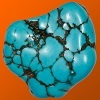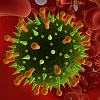IPad Apps

Rocks and Minerals

Structure of earth

Simple Machines

Magnets

Animal Adaptations

Plant Adaptations

Diseases

Solar System
Welcome to FunAppSchool

IPad and IPhone Apps
Educational Games for IPad and IPhone. English Grammar and Science Apps for Elementary and Middle School Kids.
Styrofoam
Styrofoam is a product made from a type of plastic called polystyrene. It is light, can be made into many different shapes and sizes, and is a superb insulator (protecting heat and cold).
Polystyrene is a plastic that has a petroleum base to it. Styrofoam is very light because 95% of it is just air.
Styrofoam is made when the polystyrene is increased or expanded into a lightly puffed or foamed state.
Carl Munters from Sweden first invented foamed polystyrene. In the 1940s Ray McIntire improved Munters’ invention and began producing the product commercially.
McIntire used to work for a company called Dow Chemical, which is the sole manufacturer of Styrofoam in the world.
The plastic like cups we drink coffee from, our food trays, and the packaging that protects electronic and other appliances are made from Styrofoam.
While the demand for Styrofoam is quite high, many scientists and environmentalists are concerned with the effects Styrofoam has on the environment.
Polystyrene is believed to have cancer causing agents, especially when microwave because the chemicals in the Styrofoam container leak out for the heat and mix with the food.
Another obvious concern is that polystyrene is made from petroleum, and petroleum causes heavy environmental pollution.
Many cities and counties like Taiwan, Portland, and Orange County California have legally banned the production of polystyrene because it contributes to almost 30% of space in landfills.
Styrofoam also blocks the digestive system of animals when it breaks into little pieces. This causes many problems to animals including death.
Since it does not recycle easily, many plastic recycling plants do not accept Styrofoam.
As an alternative many businesses and environmentalists promote environmentally friendly packaging systems to replace Styrofoam and polystyrene packing.
Bamboo, corn plastics, and recycled papers are therefore preferred over Styrofoam.
We can all do our part by using more recycled products and less Styrofoam and polystyrene products as much as possible to promote a healthier environment.







